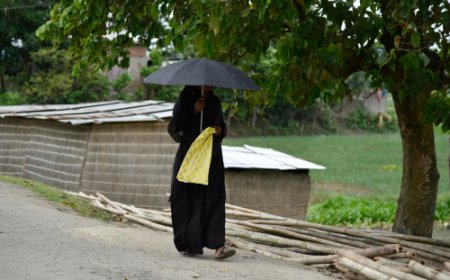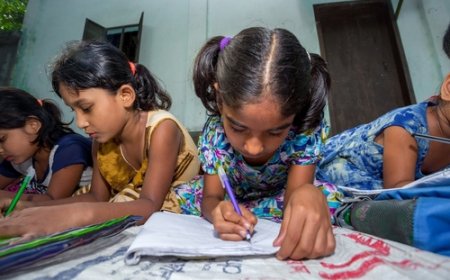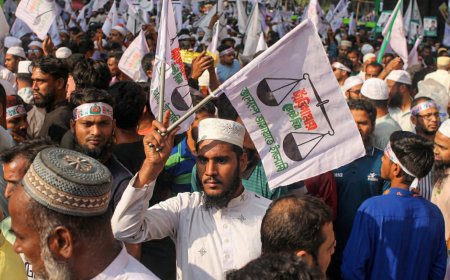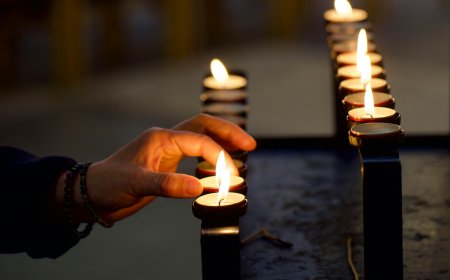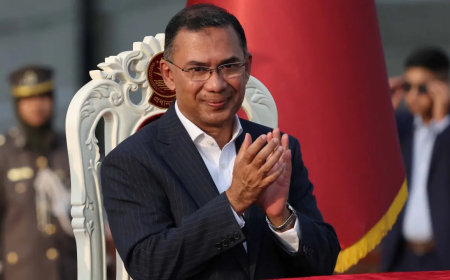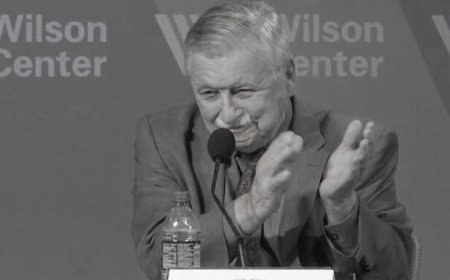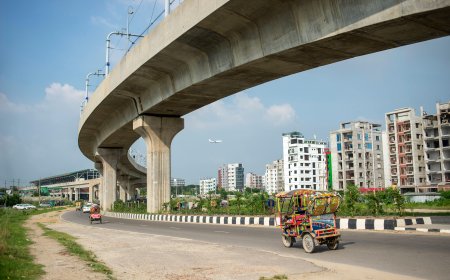Can the Centre Hold?
The choices Bangladesh makes in the coming years will determine the future. Political experience, ideological moderation, and administrative grounding -- all characteristics associated with the centrist tradition -- will be essential components of a successful democratic transition.

As Bangladesh navigates its turbulent transition from a prolonged period of centralized authority to an uncertain democratic reopening, the debate over who can responsibly lead the next phase of governance has intensified.
The political field is suddenly wide, its players energetic but uneven, its alliances fluid, and its institutional expectations yet to settle.
In this landscape, conversations frequently return to one enduring question: which political actor possesses both the experience and the institutional temperament to steer a fragile state through recovery without igniting new cycles of instability?
For many analysts and observers, the Bangladesh Nationalist Party (BNP) inevitably enters this discussion -- not as a definitive solution, but as a political force whose long history, centrist instincts, and administrative familiarity make it a notable contender.
The BNP’s relevance today stems as much from the absence of established alternatives as from its own track record. Yet its role, prospects, and limitations deserve careful examination within a broader political context rather than through partisan enthusiasm.
Bangladesh’s modern political trajectory cannot be understood without acknowledging the BNP’s origins and evolution. Founded in 1978 by President Ziaur Rahman, the BNP positioned itself as a nationalist and pluralistic alternative to the one-party socialist direction taken in the early years of independence.
The party played a central role in the restoration of multi-party democracy after the 1990 mass movement, subsequently forming governments in the 1990s and early 2000s. These periods were marked by both achievements -- such as economic liberalization, expansion of the private sector -- and improvements in rural infrastructure.
Yet supporters and critics alike recognize that the BNP’s approach to governance was grounded in administrative pragmatism rather than revolutionary transformation. This centrist instinct --balancing nationalism with openness, religious identity with constitutional secularism, Western partnerships with regional diplomacy -- has allowed the party to appeal to a broad constituency. For some observers, such a balance offers a stabilizing counterweight to ideological extremes.
However, this historical positioning alone does not guarantee relevance in a rapidly shifting political environment. Bangladesh’s transitional moment has given rise to new actors who are reshaping the political conversation.
The emergence of groups such as the Nationalist Citizen Party (NCP) reflects a generational frustration with older parties and a desire for more assertive reform.
The attempted re-entry of Jamaat-e-Islami into mainstream politics, albeit in revised forms, signals persistent ideological currents that had been marginalized but not extinguished.
These developments have created a competitive landscape in which the BNP is one of several claimants.
The appeal of newer parties lies largely in their rhetoric of renewal. Their critiques of entrenched elites and promises of systemic overhaul resonate with urban youth exposed to digital activism and global political narratives.
Yet their detractors highlight crucial limitations: lack of administrative experience, weak organizational capacity beyond urban centers, and an uncertain understanding of the complex machinery of a state with 170 million people.
Governance, in this view, is not an arena for improvisation. Bangladesh’s bureaucratic system, foreign policy obligations, and development priorities require not merely enthusiasm but institutional literacy, technical familiarity, and continuity.
Where BNP Shines
This is where proponents of the BNP argue that experience matters. The BNP maintains a nationwide structure that survived years of repression, internal crisis, and political exclusion. It retains networks of local leaders, administrators, and policy advisers who have previously worked within government systems.
Even critics who dispute the party’s moral authority or political judgment acknowledge its depth of institutional memory -- an asset that newly formed parties cannot quickly replicate.
Yet whether institutional experience translates into contemporary legitimacy is a separate question. The BNP’s prolonged absence from power, internal factionalism, and generational divides have posed significant challenges.
The leadership structure remains a subject of debate, with some arguing that the party needs clearer ideological direction and organizational renewal to function effectively in a transformed political environment.
Younger voters, who grew up after the BNP’s last term in government, do not necessarily view it through the same historical lens. Their political priorities revolve around transparency, economic opportunities, and participatory governance -- areas in which all traditional parties face trust deficits.
Examining alternatives also reveals specific risks. Jamaat-e-Islami, despite attempts at rebranding, continues to bear the legacy of its opposition to the 1971 Liberation War and its aspiration for a more theologically influenced political framework.
Critics argue that re-legitimizing such an ideological platform could intensify social polarization and complicate Bangladesh’s diplomatic relationships, especially with partners who value the country’s reputation as a moderate Muslim-majority democracy.
The NCP and similar groups, by contrast, channel frustrations with past governments but have yet to demonstrate the organizational resilience, policy depth, or grassroots infrastructure required for sustained governance.
Their populist messaging may be energizing, but analysts caution that political transitions built on anger rather than institutions can produce instability. Bangladesh’s experience in the early 1970s remains a cautionary reminder: revolutionary momentum does not automatically translate into administrative capability.
Against this backdrop, arguments in favor of a centrist anchor -- whether embodied in the BNP or another reformed mainstream force -- reflect concerns about national coherence.
Bangladesh faces significant economic pressures: inflation, youth unemployment, declining investor confidence, and the challenges of navigating global markets during geopolitical shifts. The bureaucracy is cautious after years of politicization. Foreign partners are assessing the credibility of new political narratives.
In such a climate, any governing party must not only win elections but also reassure institutions, investors, and international stakeholders that the transition will be predictable.
The BNP’s supporters argue that the party, if committed to internal reform, could offer such predictability. Its familiarity with diplomatic norms, economic frameworks, and state institutions provides it with the capacity to resume governance without steep learning curves. At the same time, critics contend that the BNP must address its internal divisions, articulate clearer policy plans, and rebuild public trust if it hopes to be viewed as more than a legacy party resting on historical credentials.
Going Forward
Ultimately, the question extends beyond the BNP itself. Bangladesh’s political reconstruction requires rethinking how centrist politics can operate in an era of heightened polarization, digital activism, and generational change. The country’s political future may depend less on individual parties and more on the ability of actors across the spectrum to embrace dialogue, accept democratic competition, and avoid the temptations of zero-sum politics.
A stable political transition does not have to hinge on a single party. It hinges on the emergence of a governing culture that values moderation, competence, and institutional stability. Whether the BNP can embody such a culture, or whether another centrist force may eventually rise, remains open to political evolution.
The choices Bangladesh makes in the coming years will determine whether the nation moves toward consolidation or fragmentation, toward institutional confidence or episodic volatility. Political experience, ideological moderation, and administrative grounding -- all characteristics associated with the centrist tradition -- will be essential components of a successful democratic transition.
Whether that centrist role is played by the BNP or by a reconfigured political landscape is a decision that rests not with any argument or prediction, but with the democratic process and the collective judgment of the Bangladeshi people.
H. M. Nazmul Alam is an academic, journalist, and political analyst based in Dhaka, Bangladesh. He currently teaches at IUBAT. Contact: [email protected].
What's Your Reaction?













